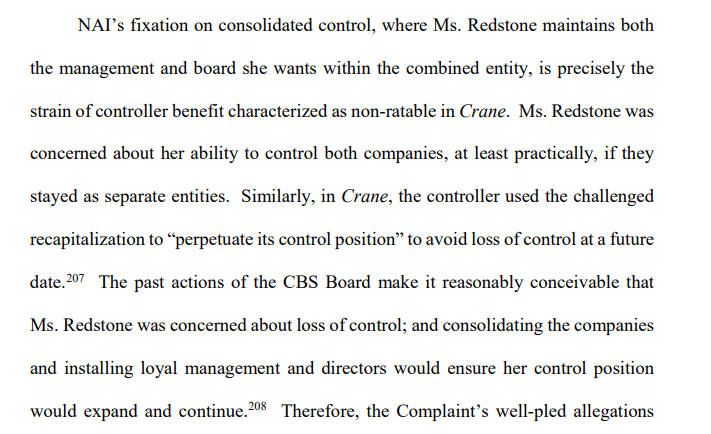VC Slights (unsurprisingly) just denied the motion to dismiss in the Viacom litigation, where pltfs allege Redstone sold out the Viacom shareholders in the merger with CBS:
https://courts.delaware.gov/Opinions/Download.aspx?id=314840
https://courts.delaware.gov/Opinions/Download.aspx?id=314840
The defendants made the somewhat bizarre argument that the transaction shouldn't be subject to entire fairness just because a controller stood on both sides - that pltfs additionally have to allege a nonratable benefit, which they did not.
It's a bizarre argument because standing on both sides, by definition, means that the controller gets a nonratable benefit.
Slights took it seriously, though, but rather than decide whether "mere presence" is enough, said there were nonratable benefits here.
In my view, of course there were - Viacom SHs traded their stock for shares in the new entity, which Redstone shared with them. She also traded her CBS shares for shares in the new entity, and that's not a benefit Viacom shareholders had. The end.
Once again, not what Slights said. For him, the nonratable benefit Redstone obtained was personal: an easier way to control both companies.
Which, I mean, okay. But there's an interesting footnote - dunno if it means anything. As I sad, Slights refused to rule on whether "mere presence" on both sides gives rise to heightened scrutiny, or whether an additional nonratable benefit must be shown.
I've said before that dual-class structures pose a challenge to Delaware doctrine, and here's a hint that Delaware judges may be willing to create separate legal standards to review dual-class controller actions.

 Read on Twitter
Read on Twitter




